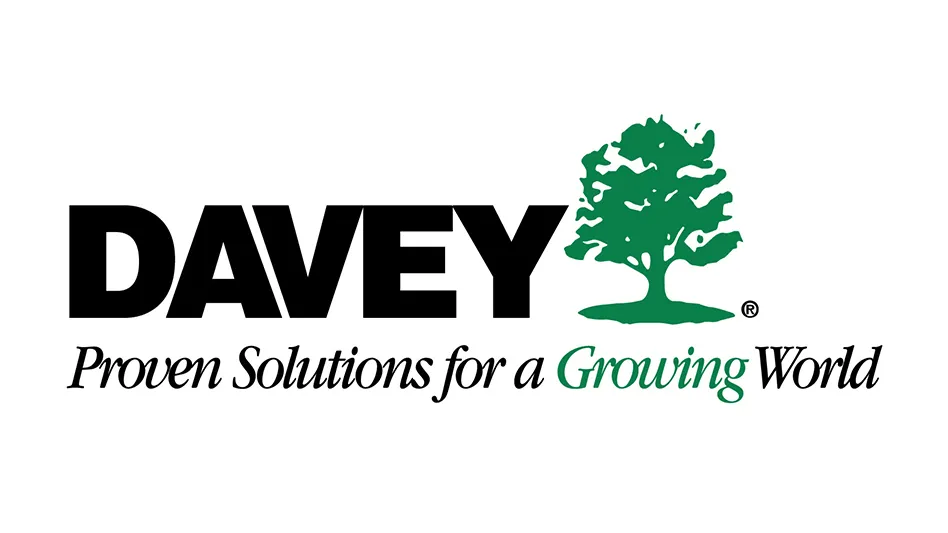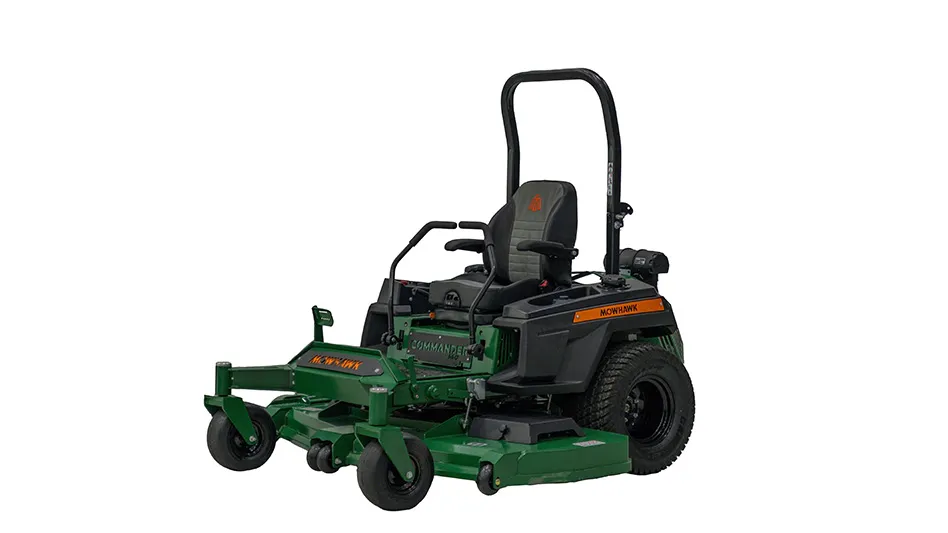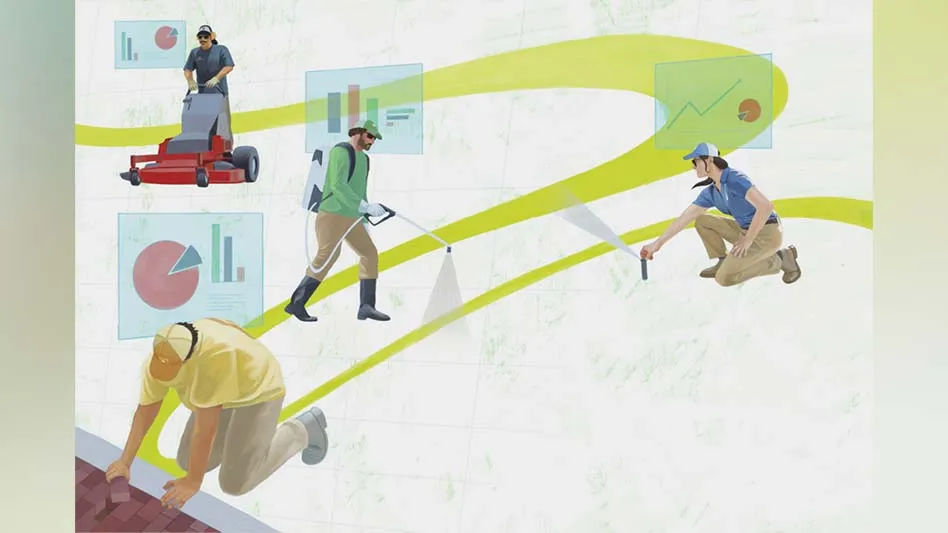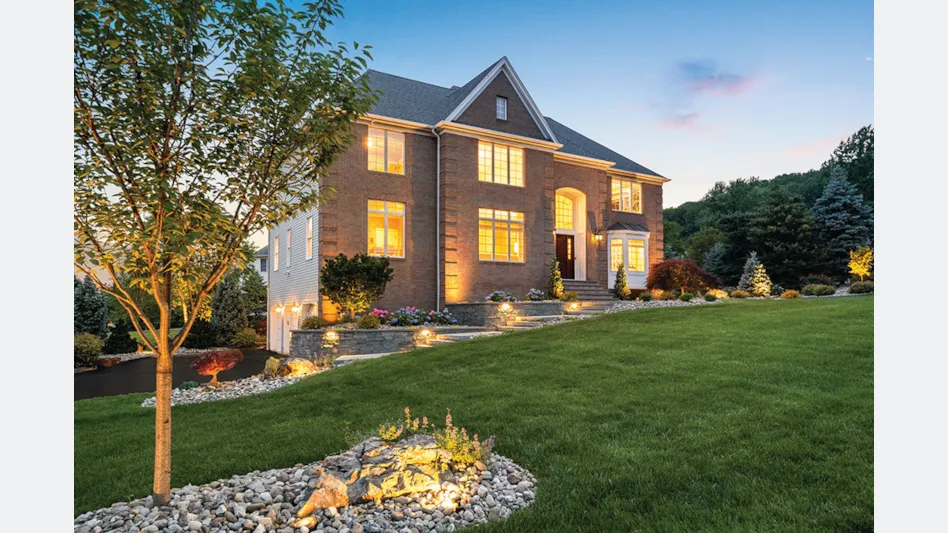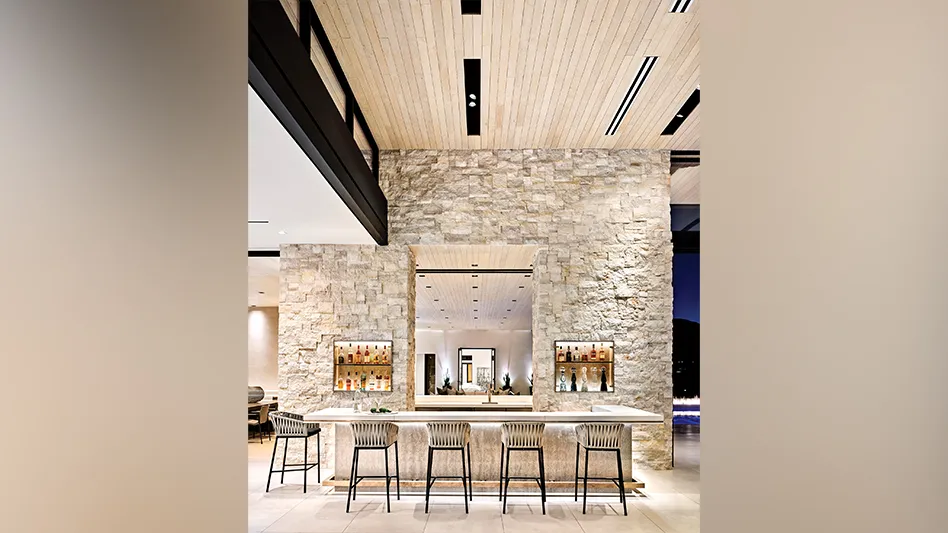“We couldn’t stop the bleeding fast enough,” says Barnes Nursery Vice President Jarret Barnes of 2008, during the economic fallout when home building just stopped happening in northern Ohio, and particularly along Lake Erie where vacation homes are popular.
The problem for Barnes was the investment it literally had in the ground: 300 acres of plant material that required costly maintenance but could not be specified or sold. “You couldn’t give a tree a way at that time,” Barnes says.
The family business continued to care for its acres, supporting a legacy of plantsmen and their grandfather’s love of trees. It would be heartbreaking to raze the land. But how long could Barnes Nursery continue paying to care for hundreds of acres of nursery stock that no one would buy? There were no large-scale design-build projects on the books at the time either.
“In the last three years we had to make a decision. We had to pull the trigger and say, enough is enough, let’s see if we can weather the storm with no maintenance [for the nursery stock] and what is left, we’ll use and sell, and what’s not we’ll push out of the ground and move on to another product,” Barnes says.
Today, Barnes maintains 75 acres of trees — the rest is beans, and eventually some corn will be planted in the sharecropped space. Rather than draining the budget to care for acres of land and trees unsold, others are footing some of the bill to use the rich sandy loam, a revered characteristic of Huron, which has strong agricultural roots.
But transitioning the land from nursery stock to farm crops was no overnight gig. “It wasn’t cheap to get out of,” says Julie Barnes Foster, head of Barnes Garden Centers, noting how the fields had to be cleared. “And it wasn’t an easy decision for the family. It took a long time to pull the trigger, and then to see it turn from trees into beans.”
But the business is stronger now because of that choice. In 2008, its revenues were nearly cut in half, Barnes says. The company reduced its office staff by 30 percent, including people who had been with the company through years of good times. “We just couldn’t afford to keep everyone,” Foster says.
The staff is about 100 strong today, and the company is still diversified with divisions in maintenance, lawn care and design/build and landscape materials, including organics and composting, which is a specialty of Barnes’ mother, Sharon, who was somewhat of a pioneer in the industry. She has been focused on composting since the early 1980s and heavily involved in the U.S. Composting Council
The business is recovering and positioned for growth, with eyes on design/build and projects along with the potential that a public interest in compost brings. “The interest has definitely spiked,” Foster says.
